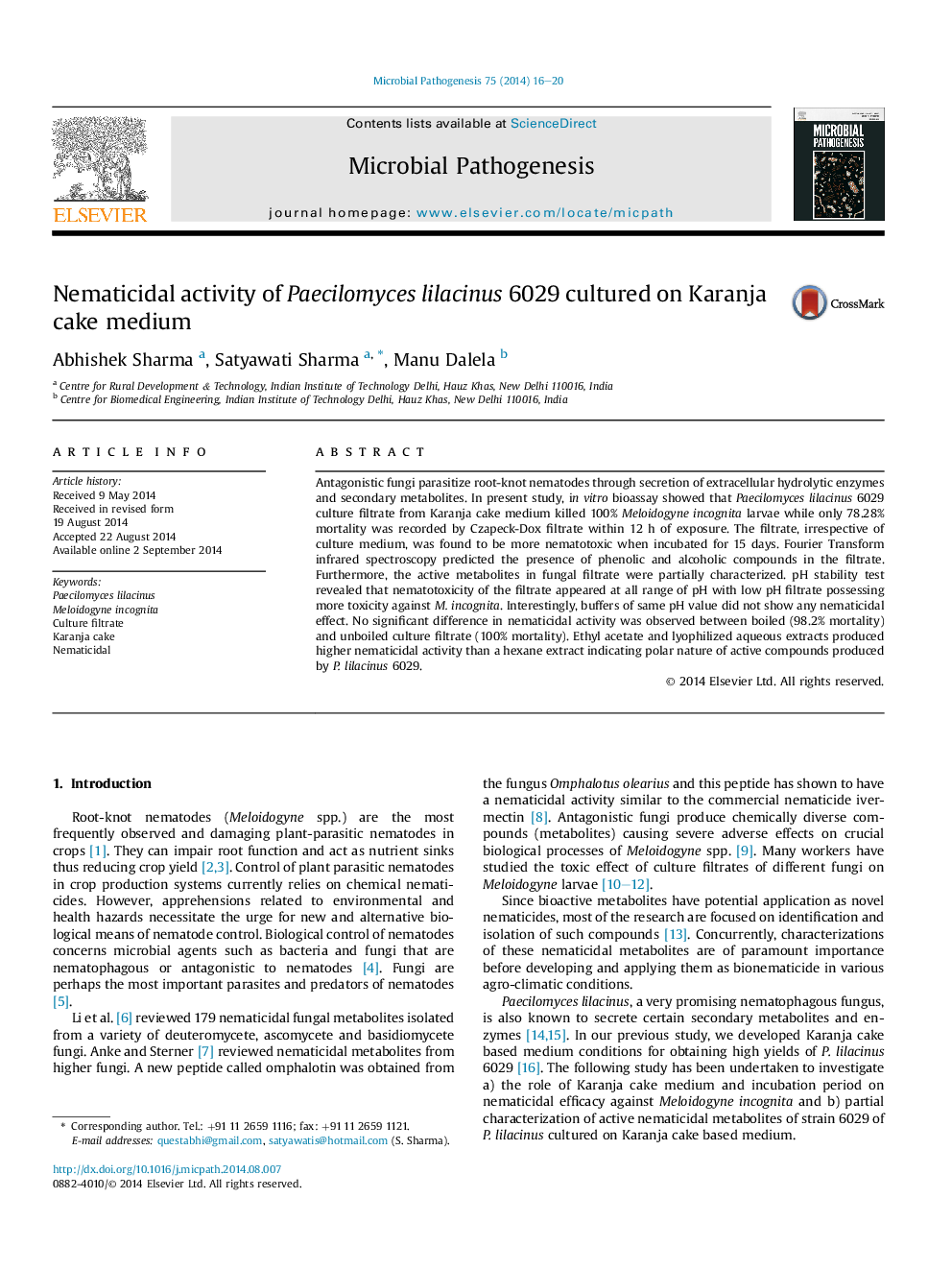| Article ID | Journal | Published Year | Pages | File Type |
|---|---|---|---|---|
| 3416589 | Microbial Pathogenesis | 2014 | 5 Pages |
•Developing bio-alternatives to chemical pesticides is of global scientific interest.•Karanja cake enhanced the pathogenicity of Paecilomyces lilacinus against Meloidogyne incognita.•In vitro bioassay revealed that metabolites are mainly non-proteins & acidic compounds.•Current findings could help interpreting efficacy of P. lilacinus in field conditions.
Antagonistic fungi parasitize root-knot nematodes through secretion of extracellular hydrolytic enzymes and secondary metabolites. In present study, in vitro bioassay showed that Paecilomyces lilacinus 6029 culture filtrate from Karanja cake medium killed 100% Meloidogyne incognita larvae while only 78.28% mortality was recorded by Czapeck-Dox filtrate within 12 h of exposure. The filtrate, irrespective of culture medium, was found to be more nematotoxic when incubated for 15 days. Fourier Transform infrared spectroscopy predicted the presence of phenolic and alcoholic compounds in the filtrate. Furthermore, the active metabolites in fungal filtrate were partially characterized. pH stability test revealed that nematotoxicity of the filtrate appeared at all range of pH with low pH filtrate possessing more toxicity against M. incognita. Interestingly, buffers of same pH value did not show any nematicidal effect. No significant difference in nematicidal activity was observed between boiled (98.2% mortality) and unboiled culture filtrate (100% mortality). Ethyl acetate and lyophilized aqueous extracts produced higher nematicidal activity than a hexane extract indicating polar nature of active compounds produced by P. lilacinus 6029.
